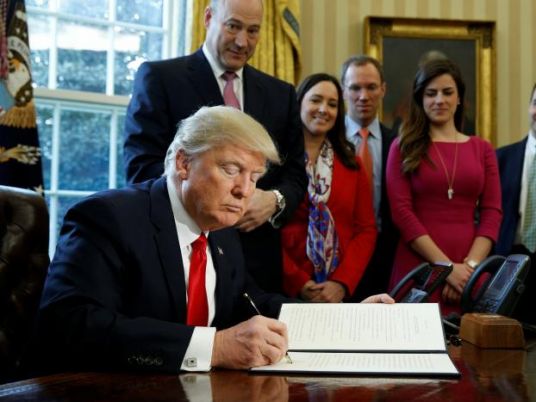
"Every morning I warn my sons against defining themselves as Muslims," says Aswar Yaser, an Egyptian residing in California. Though US President Donald Trump's travel ban did not include Egyptian nationals, it opened the door for violence and racism against Arabs and Muslims in general, he added.
Trump signed an executive order in late January that banned nationals of Iran, Iraq, Libya, Somalia, Sudan, Syria, and Yemen from entering the US to protect the country from the potential entry of foreign terrorists. Federal courts have issued several emergency orders halting this ban.
"Terror prevails as there are radicals … I live in California where people are generally considered to not support Trump, but I'm still scared. I think that non-Americans are considered second-class citizens," says Aswar.
She said Green Card holders have the most to fear — whether they will be still be entitled to the advantages as cardholders after these arbitrary decisions against immigration.
Ahmed Hassan, a resident for three years in Illinois, said so far Trump's decisions have not reached the legislative rank and are still being controlled by the judiciary.
He added that the Trump's decisions have not tackled immigration laws in detail, but are solely focused on those entering the US territories for purposes other than immigration. Ahmed said the basic rules and laws of immigration are still in place.
The current events have not scared Amira Mohsen, who lives in Boston, as Massachusetts is very culturally diverse, pointing out that people are receptive to her appearance as a veiled woman.
Following Trump's decisions, Amira said the local university held an emergency meeting, for Arab and Muslim students in particular, to warn them against traveling from one town or state to another during this period.




